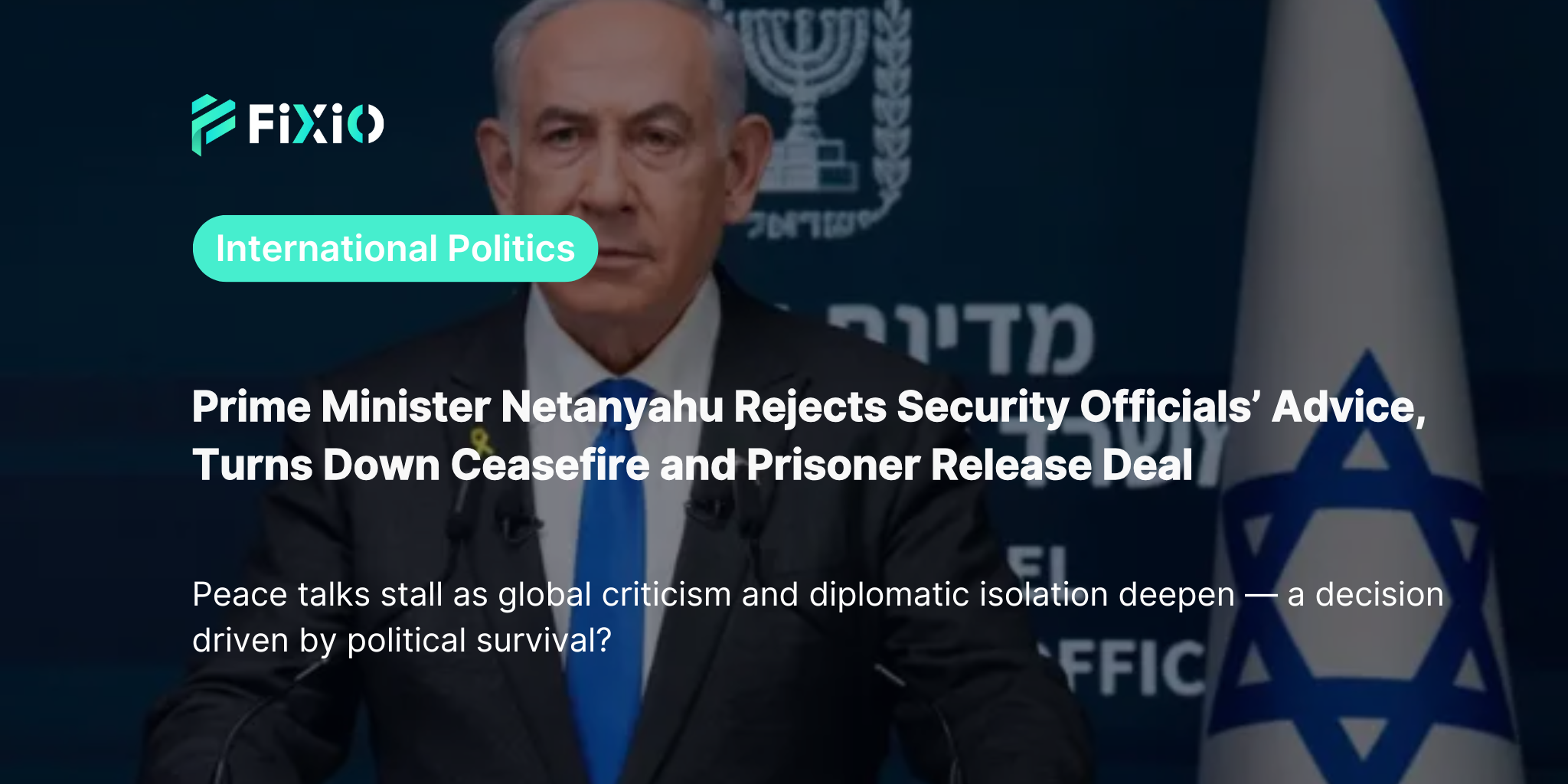
[Israeli Report] Prime Minister Netanyahu Rejects Ceasefire and Prisoner Release – A Turning Point in Peace Talks and Political Strategy
Tensions continue over the Israeli–Palestinian conflict, with multiple rounds of indirect negotiations between Israel and Hamas. Notably, the situation in Gaza worsened significantly after Hamas launched the “Al-Aqsa Flood” operation on October 7, 2023. On November 24, a temporary ceasefire and prisoner exchange were agreed upon. Then, from January 19, 2024, over a 42-day period, the first phase of the prisoner exchange was implemented, during which more than 1,700 Palestinians and 33 Israelis were exchanged.
However, negotiations for a full ceasefire—the “second phase”—have stalled due to Israel’s position.
Israeli TV channel "Channel 13" reported it had obtained meeting minutes from a secret session between security officials and government leaders. The documents revealed that intelligence agencies such as Mossad and Shin Bet supported a comprehensive agreement involving a halt to hostilities and a mass prisoner release. However, Prime Minister Netanyahu reportedly rejected the proposal, fearing that withdrawal from Gaza or ending the war could threaten his political base. While security agencies argued that war could resume if necessary, Netanyahu ultimately declined the plan.
The Hostage Families Committee expressed outrage over the revelations, stating the government had "betrayed the public." They argued that accepting the comprehensive deal could have saved hostages who have since died. In fact, out of the 33 Israeli hostages involved in the exchange, 8 were confirmed dead. Since the breakdown of the agreement, more than 50 soldiers have reportedly died, increasing human losses.
According to political analysts, Netanyahu is reluctant to pursue peace for fear of losing support from far-right factions such as the Religious Zionism party. There is growing suspicion that prolonging the war is a means of political survival. As a result, criticism is mounting both domestically and internationally that the government is prioritizing power over human lives.
Mediators of the ceasefire, including Qatar and Egypt, have expressed concern over Israel’s uncooperative stance. Within the United States as well, voices of doubt are growing over continued support for Netanyahu’s administration. Israel is increasingly becoming diplomatically isolated. Particularly in the UN and European countries, calls for a humanitarian ceasefire are intensifying, and pressure on the Israeli government is expected to grow further.
The lives of hostages, the humanitarian crisis, international credibility, and the nation’s future—all rest on the decisions of the Netanyahu administration. Avoiding prolonged warfare and isolation requires leadership that transcends domestic political interests. The question remains: will Israel seize this historical turning point and steer toward real peace? The world and its own citizens are watching closely.
This article focuses on Prime Minister Netanyahu’s rejection of proposals from Israeli security authorities, which obstructed a ceasefire and prisoner release in Gaza, and analyzes the underlying political motives. Amid growing international criticism and diplomatic isolation, it emphasizes that a political decision is crucial to achieving lasting peace.
Superior trade execution & trading conditions with the NDD method.

The online FX industry provides a platform for investors worldwide to engage in the buying and selling.

Subscribe to our daily newsletter and get the best forex trading information and markets status updates
Trade within minutes!
Comment (0)